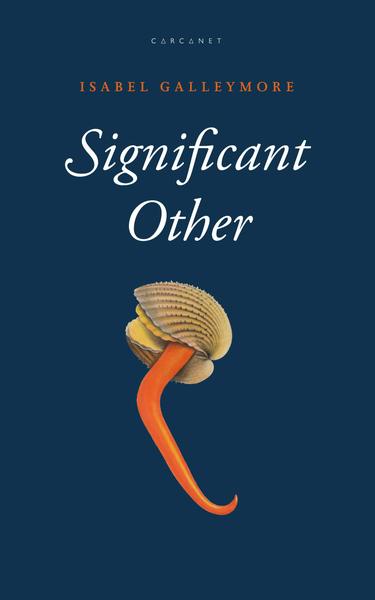Isabel Galleymore’s debut collection, Significant Other (Carcanet) is a vividly detailed poetic chronicle of some of the world’s most fascinating species.
The first poet-in-residence at Tambopata Research Centre in the Amazon Rainforest, Galleymore forages with wide-eyed fascination in search of new poetic ground. Underpinned by the desire to discover new ways of describing the natural world, these poems carry the painstaking attention to detail of dressmaking, both in the economic precision of their metrics and their manipulation of material. ‘The Starfish’, for example, is full of style, with the ‘immobile mussel / whose navy mackintosh is zipped’, while ‘Slipper Limpet’ parades around with a ‘shoe of shell […] empty bone slipper, departed Cinderella’. This metaphor-rich lyric transports readers to spell-binding lairs.
Elsewhere, less magical and more disturbing, spiny cockles are said to ‘wear their ribs inside out’ whilst a clumsy starfish ’causes one cockle to buckle and let / its long pink foot slip like a leg / from the slit of its crenulated skirt’ (‘Spiny Cockle’). Galleymore is most skilled in her search for profundity in ‘Crab’.
It’s these bone clothes the crab outgrows
the way song, lifting a decibel, bursts
a glass, there’s some civil upheaval
as the crab thwarts the fortlet of itself
and pauses for a minute, out-of-body,
a faded, vulnerable replica
Here, Galleymore charts the ‘civil upheaval’ of a crab outgrowing its ‘bone clothes’, a bold endeavour that pulls expectation out by its roots. In ‘False Limpet’, an impressively perceptive sea creature turns a critical eye upon itself, and apparently upon the trend of anthropomorphism, where the natural world is ‘never itself, only the imitation of something / else’. ‘No Inclination’ is the most riotous example, as nature is no longer presented as the prized object of admiration, anthropomorphised or placed on a pedestal.
It came to light that mountains were some
of the least despondent land formations,
that a surprising number of gales
didn’t know what it was to howl.
The woebegone voice of the willow
confirmed it had no reason to weep.
Rather than celebrate sublime expansive landscapes, Galleymore focuses on the small and overlooked, zooming in to depict the miracle of the minute.In doing so, language bends with the poet’s will, flexible and open to flux. A goose barnacle, for example, poses as “An enamelled flower bud, a locket / made of shell” one moment, before miraculously transforming into ‘a lacquered fingernail / treehoused upon a wormy stalk / that wags’ (‘Goose Barnacle’).
Material and malleable, the zoosemy routinely yields itself to creative mayhem and shape-shifting mélange. In ‘True Animal’, a donkey ‘magpied’ the skin of a lion, then decides to “chameleon” himself inside, until all the other animals ‘hared away’. Whilst some poems such as this delight in the joyful spirit of puns, the gravity of responsibility behind nature poetry in contemporary society does not escape Galleymore’s notice.
The rapidly melting ice cubes in a whiskey-coke in ‘No Inclination’, for example, gesture, remarkably subtly, beyond themselves to something much bigger. Discrete as ever, the dwindling ice cubes echo the missile-talk and Doomsday Preppers of these poems as much as the mute yet menacing observation that ‘the birds and branches of the papered walls / fade at a rate not considered change’ (‘Into the Woods’).
Environmentalists would describe the false notion of separation as the catalyst of environmental degradation, so much so that our lives depend on remaking the connection with nature. These poems, by contrast, interlace perfectly, not only with each other, spanning across subject and species, but also with their environment through convincing metaphoric pairings, making them both vibrant and vital.
The highly imaginative poems of Significant Other hover between the brutal tedium of reality, stripped back of archaic splendour, and an evocative dreamscape full of magic and metamorphosis: much like Galleymore’s quiet limpet rising from the rock, ‘half-mushroom, half bucking bronco’ (‘Limpet & Drill-Tongued Whelk’).

If you’d like to review for the Poetry School, or submit a publication for review, please contact Will Barrett on [email protected].
Add your Reply
You must be logged in to post a comment.